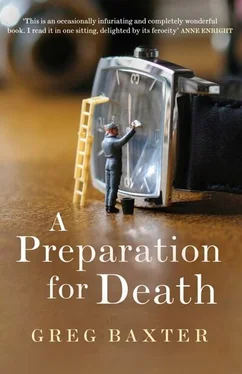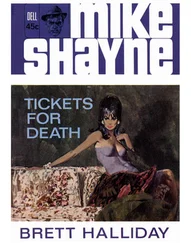Of the four or five old friends I have contact with still, Jack’s effect on my life was the most tumultuous. When we met in Germany, I was reluctantly studying science to one day study medicine, but my interest was already bottoming out. I nearly failed botany, and passed chemistry only because of a chemical leak in the building during our final exam. I could not understand calculus. I’d taken one or two courses in literature at the University of Texas and liked them very much, but had not done well in them: the cancer of my disinterest in everything else had destroyed my ability to think, or perhaps it was just that I was completely new to a field that required acumen in writing, which I lacked. I had no interest in drinking with the people I knew, in socializing with strangers, only a defeatist obsession with women, and I wrote naïve poems about unrequited love — and that was when I had the energy to act; mostly I stood in my dorm room, looking out my giant window high over the city of Austin, and mourned the premature end of my life. Two years passed — eighteen years old, nineteen years old — and all I had to show for it was the affectation of grief. Then I turned twenty, and moved to Germany for a year as an exchange student, and met Jack, who was studying English literature. From him I learned that good scholarship came from the solidity of language, not the vagueness I had blindly come to adore. It was nice not to feel ashamed of an interest in something like the arts. The acquaintances I had in Austin, until then, would have had a very long laugh if I had said something like, I like the poetry of Dylan Thomas, or (as it was in those early days) I want to walk around the Lake District and read the poetry of Wordsworth.
Jack would sometimes walk over to my tiny room in that German dorm and say things like: I finally get D. H. Lawrence; you’ve got to live life with your dick in your hands. I was usually watching television at the time: by accident I had become the television broker in the dorm, a position I inherited from the previous television broker, who must have seen something of a Shylock in me. I had a dozen black-and-white sets, and I gave them out for favours and swaps. I gave one for a blow job, another for a David Hasselhoff CD (I could hardly believe such a thing existed), another for a bicycle. I watched incomprehensible drivel — I could barely follow any of it. I wanted to be a writer, not a reader. Jack had no interest in writing, only an appreciation of literature that rounded him out.
I can’t remember when it started exactly, but at some point Jack and I began to develop a campaign of repudiation against the kind of society that appreciated things like intelligent conversation. We called this campaign disinformation . Truth be told, this was more my baby than Jack’s — he was the kind of guy who was everyone’s best friend, and inside a hundred different private jokes. But it was nice to have him to bounce ideas off. Disinformation was probably developed while I was in Austin and he in North Carolina — our senior years at separate universities — but we put it to the test in England. Disinformation had to be practised to be understood, but we taught ourselves this: you must come up with an epigrammatic response to every figure, every theory, every historical event. This response must be dismissive, both of the actual importance of the subject matter, and, through that, the unimportance of the man or woman who spoke it — if it is not dismissive, you do not understand the point of the game. Moreover, disinformation is a gestalt, a lifestyle: one dismissal wins you nothing.
This was all incredible childishness, but we lived, that year, by our faith that every proof of decency was a fraud: the people we knew pretended to be cultured, pretended to be intelligent, pretended to be magnanimous, unselfish, successful, humble, moral, caring. I waged the campaign because I thought it was funny, and because I was defending my sanity against the things a postgraduate English student at the University of Sussex heard during the course of a week in term. One day, our lecturer used the word lid — I can’t remember the context. A girl in the class began to talk about the theoretical significance of the eyelid on perception and consciousness, and ontology, and soon everyone in class was debating this: they had lost me ( lost is inaccurate, since we were nowhere), but I noted down eyelid on my notebook, so that I could come up with a response to it. Finally, the professor said, That’s interesting, but I just meant a lid, like a lid for a jar. The girl said, Oh, and began to scribble something on a piece of paper, chuckling away. It should have horrified us all. Instead, someone proposed that we develop a theory about eyelids, and give it something like a patent.
I should have walked out of my little house in Brighton with a backpack and vanished. I would have found some way to educate myself, live in some tiny flat high above a city street, give up all ambition, and learn a few more languages. Instead, I purged in London on the weekends — enough to go back each week and participate in the conspiracy. Yet I did not just participate, I excelled. I was so adept at drawing together totally incongruous thoughts by theorists and philosophers that it seemed pointless to do anything else.
A Romanian friend has begun to send me her translations of a writer called Nicolae Steinhardt. She seems to have found her stride in it. She says she cannot sleep at night sometimes, and sits at her computer and opens Steinhardt’s The Happiness Diary , and types a couple of paragraphs, then emails them to me. It is strange to hear of a person translating her mother tongue into her second language, but what she lacks in eloquence, she makes up for with lack of vanity. And a sense of belonging: she has absorbed the book so deeply into her thoughts that she is writing words that belong to her. She lives with her mother and daughter in Castleknock. Her mother does not speak a word of English. Her daughter is a teenager. I like to think of her walking around in the chilly darkness, making something warm to drink, and flipping through her favourite pages by lamplight. I’m starting to realize that only character matters. Political convictions, philosophical opinions, social origins, religious faith, are nothing more than accidents: only character remains after all the filtrations produced by years of prison — or of life — after all the wear and fatigue.
Her translations are quiet, sophisticated revolts: they put my time in England to shame. They are acts of adoration first, but also repudiations. I pretend to be doing her a favour by polishing her translations, but the reality is that they invigorate me. Not merely the content, but the image of her at work on them. I think of her awake in her bed, restless. She stands up and puts some slippers on, and a dressing gown. The house is warm and dark, and she does not turn on the lights, because she will wake the others up. She turns her computer on: I imagine there is a window over her desk, which looks out over a street that is busy in the mornings and evenings. She opens a book and begins to translate. Everyone else in the city is sleeping.
I shall describe my room first. It is a small square with brown-red carpet, brown-gold walls, and threadbare, olive-green curtains. There is a large desk in one corner — the largest thing in the room — which I have already cluttered with books, maps, receipts, toiletries. In another corner is a single bed with a small stool beside it, where I have placed a reading lamp. There is a bookshelf between those corners, but it is already full of my cousin Walter’s books. I went through them: lots of self-help material he has collected over the last decade, some religious things. He tells me he has given all that up, but he likes the way books give a room colour. There is a piano on the other side of the room, which I may try to play if I get drunk enough. I am three storeys up, and I overlook the sleepy street — Amalienstrasse, in Ober St Veit, on the far west side of Vienna. There is a small balcony outside the room, but it is too cold to stand on it. Because it is the end of December, the sun is very low, and in the early mornings, if the sky is clear, it burns right through the weak green curtains.
Читать дальше












